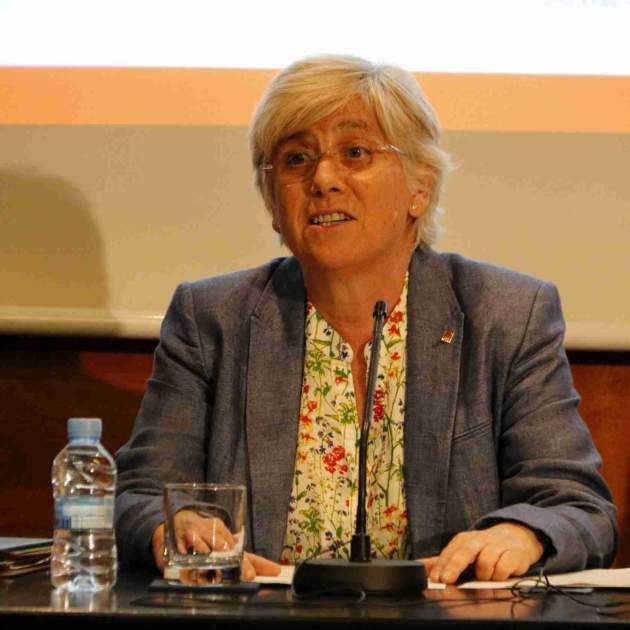Spain's public prosecution service has no plans to ask for the activation of the dropped European Arrest Warrant nor the implementation of any international arrest warrant against Clara Ponsatí. The minister announced this weekend that she has returned to the University of Saint Andrews (Scotland), where she had been head of the School of Economics and Finance.
Also this weekend, she was seen taking part in a demonstration in London. Following other, prior moves by her fellow ministers or former CUP spokesperson Anna Gabriel, the public prosecutor had asked judge Pablo Llarena to issue arrest warrants, something he has always refused to do.
Now, prosecutors themselves have turned to the Supreme Court judge's arguments to not ask for a new order. Instead, they will request one once the judge writes his report at the end of the investigation, giving the final definition of the charges before going to trial. This is the same as the plan regarding Carles Puigdemont and the other ministers in exile: Toni Comín, Lluís Puig and Meritxell Serret.
Prosecutors had asked for Puigdemont's arrest warrant to be reactivated when he went to Copenhagen to take part in a debate and asked for one to be issued when Anna Gabriel announced that she was in Switzerland. In both cases, the judge's response was the same: he wouldn't issue them until the charges were finally defined. That is seen as key when it comes to comparing the penal codes of the different countries as regards the possibilities of extradition.
In a statement, the public prosecutor also says that, despite positioning itself after the release of Oriol Junqueras, Joaquim Forn, Jordi Sànchez and Jordi Cuixart, according to European Court of Human Rights case law, they have the right to be tried within a reasonable period and be released at any time during the investigation. They note that the court guarantees the review of cautionary measures, like pretrial detention, and that they can be lifted once the evidence for the crime and the reasons that justified the measures have been examined to see if they remain.
So far, every time one of the political prisoners has asked for reconsideration or appealed for release, it has been refusing arguing that the risk of them reoffending persists.
